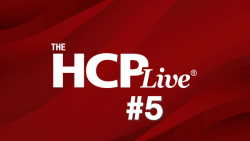Updates and Unmet Needs in PBC - Episode 1
Advances in Diagnostic Criteria and Methods for Early Detection of PBC
In this video segment, Palak and Trivedi describe current and emerging diagnostic methods for primary biliary cholangitis.
In the opening segment of our HCPLive Special Report on Updates and Unmet Needs in PBC, Palak Trivedi, MD, PhD, and James Boyer, MD, discuss the current diagnostic criteria and methods for early detection of primary biliary cholangitis (PBC). Trivedi emphasizes the importance of a high index of suspicion, particularly in women over 45 with cholestatic biochemistry profiles, and highlights the role of anti-mitochondrial antibodies and PBC-specific antinuclear antibodies in diagnosis. They also explore recent advances, such as the increasing recognition of antibodies like anti-GP210 and anti-SP100.
Trivedi notes that liver biopsies are now rare for diagnosis but may be necessary to resolve diagnostic doubts. The discussion shifts to staging the disease, where contemporary methods like transient elastography (FibroScan) have replaced biopsies for assessing fibrosis, though biopsies remain useful in specific cases for evaluating liver injury parameters.
Check out the other segments in this series:
- Part 1: Advances in Diagnostic Criteria and Methods for Early Detection of PBC
- Part 2: Updates in Therapeutic Approaches to PBC Following Elafibranor Approval
- Part 3: Clinical and Patient Perspectives on Unmet Needs in PBC Management
- Part 4: Beyond Current Standards: Emerging Therapies for Primary Biliary Cholangitis
- Part 5: Improving Strategies for Management of Primary Biliary Cholangitis
Subject Matter Experts:
- James Boyer, MD, Ensign Professor of Medicine at Yale School of Medicine and the Founder and Emeritus Director of the Yale Liver Center.
- Palak Trivedi, MD, PhD, Associate Professor and Honorary Consultant Hepatologist and Clinical Research Director for Industry Engagement at the University of Birmingham. Also serves as an investigator on the open-label ASSURE trial of seladelpar in patients with PBC.



